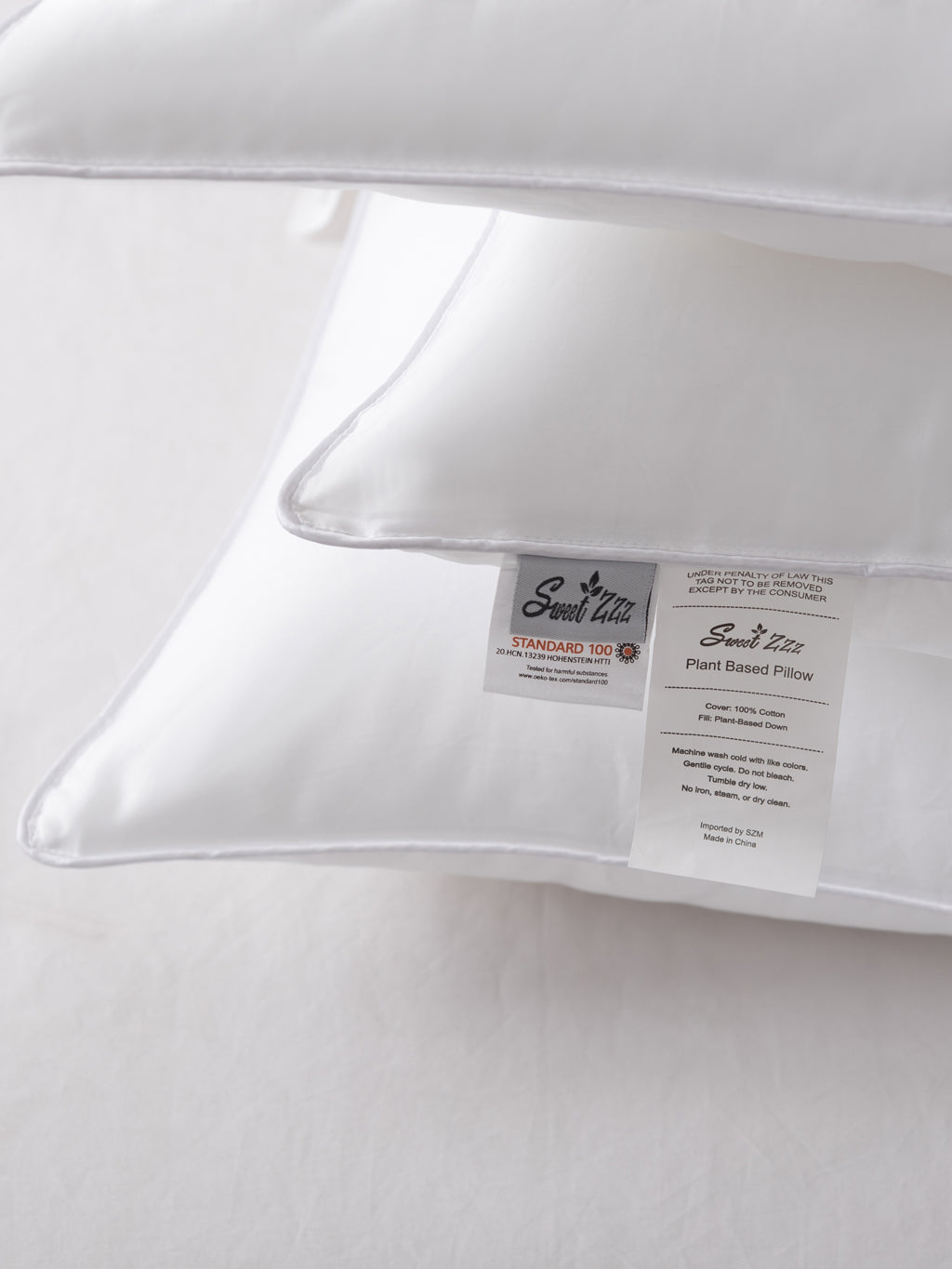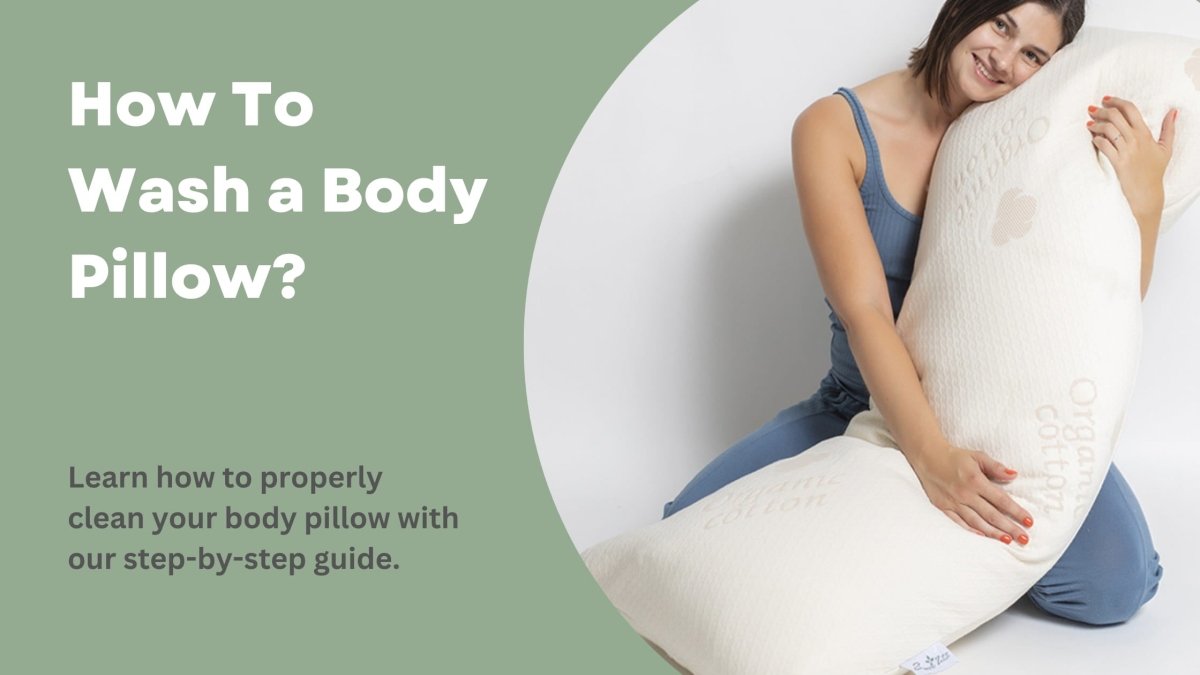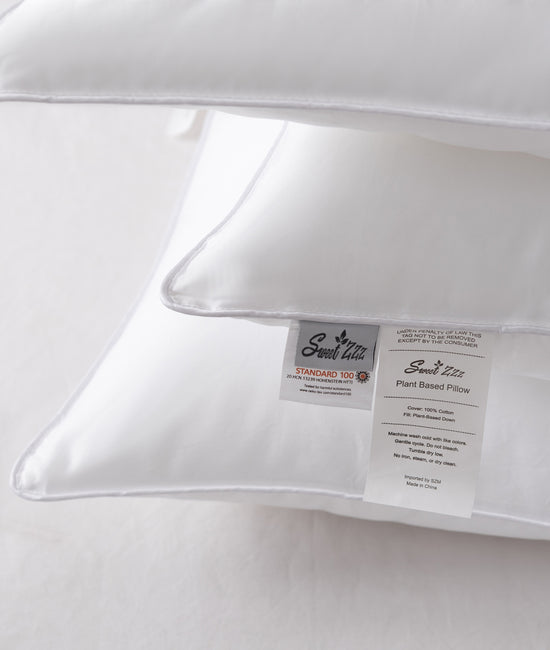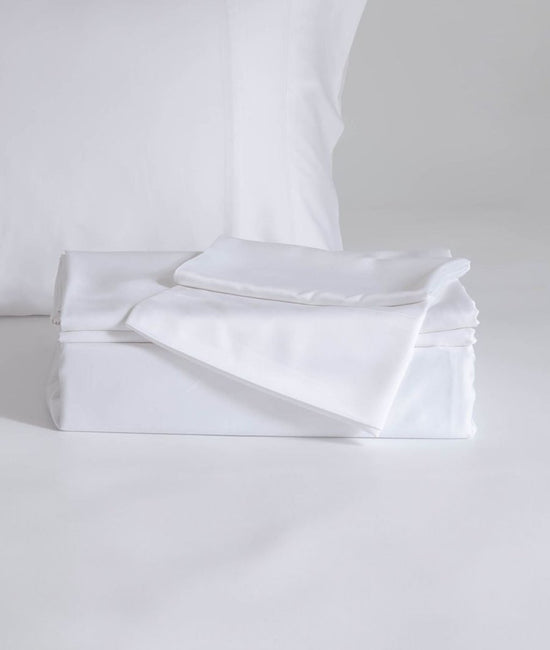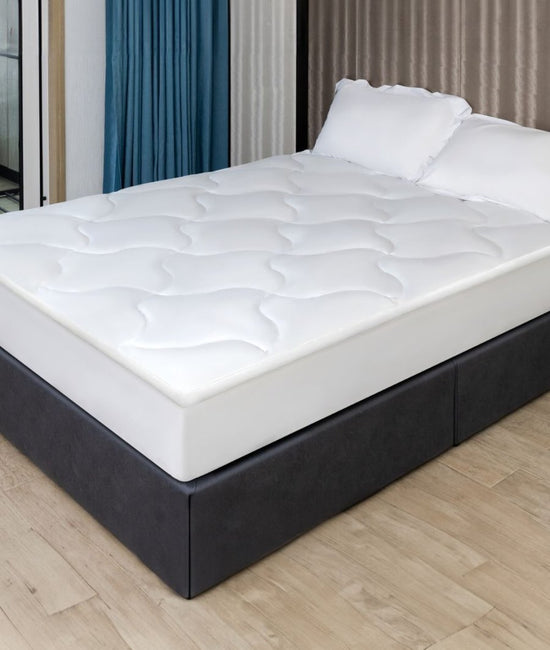Pillow Shopping Guide: Things You Need to Know
Pillow Shopping Guide: Things You Need to Know
Shopping for the perfect pillow can be a daunting task, given the vast array of options available on the market. To make the process easier and ensure you find the right pillow for your needs, it's essential to be well-informed. In this article, we'll discuss key points to consider when pillow shopping, including materials, budget, and the benefits of a natural pillow. We'll also answer some common questions related to pillow usage, sizes, and replacement frequency.
Consider the Materials
Different pillow materials cater to different needs, preferences, and sleep positions. For example, a plant-based down alternative pillow combines the softness and loft of down with the hypoallergenic properties and cruelty-free nature of synthetic materials. Memory foam and latex pillows offer contouring support, while traditional down or feather pillows provide a soft, luxurious feel.
Set a Budget
Pillows can range in price from budget-friendly to high-end, with options available to suit various budgets. It's a good idea to set a budget of around $100, which should allow you to find a high-quality pillow that meets your needs without breaking the bank.
Consider a Natural Pillow
Natural pillows, made from eco-friendly and sustainable materials like plant-based down alternatives or natural latex, offer numerous benefits. They tend to be hypoallergenic, temperature-regulating, and comfortable, making them a worthwhile investment for a healthier and more restful sleep.
Common Pillow Questions:
1. Do I need to sleep with a pillow?
Sleeping with a pillow is a personal preference, but using one can provide proper support for your head and neck, promoting spinal alignment and reducing the risk of pain or discomfort. If you prefer not to use a pillow, ensure you maintain a comfortable sleeping position that keeps your spine aligned.
2. What are the common sizes of pillows?
There are several standard pillow sizes, including:
- Standard: 20 x 26 inches
- Queen: 20 x 30 inches
- King: 20 x 36 inches
In addition to these, there are specialty sizes like the Euro pillow (26 x 26 inches) and travel pillows, which vary in size. When selecting a pillow size, consider your bed size, preferred sleeping position, and any additional pillows you may use.
3. How often should you replace pillows?
The lifespan of a pillow depends on its material and quality. Generally, it's recommended to replace pillows every 1-2 years for synthetic options and every 3-5 years for higher-quality materials like memory foam or latex. However, if your pillow has become flat, lumpy, or no longer provides adequate support, it may be time for a replacement.
Conclusion
When pillow shopping, consider factors like materials, budget, and the benefits of natural options. Understanding these elements will help you make an informed decision and find the perfect pillow for your needs. Remember to assess your personal preferences, sleeping position, and any specific requirements you may have to ensure you invest in a pillow that will provide lasting comfort and support.



